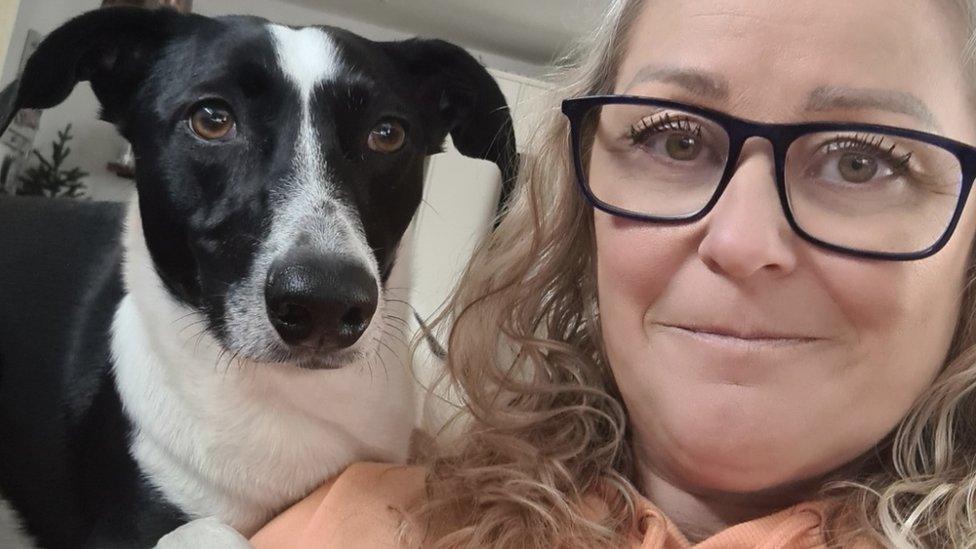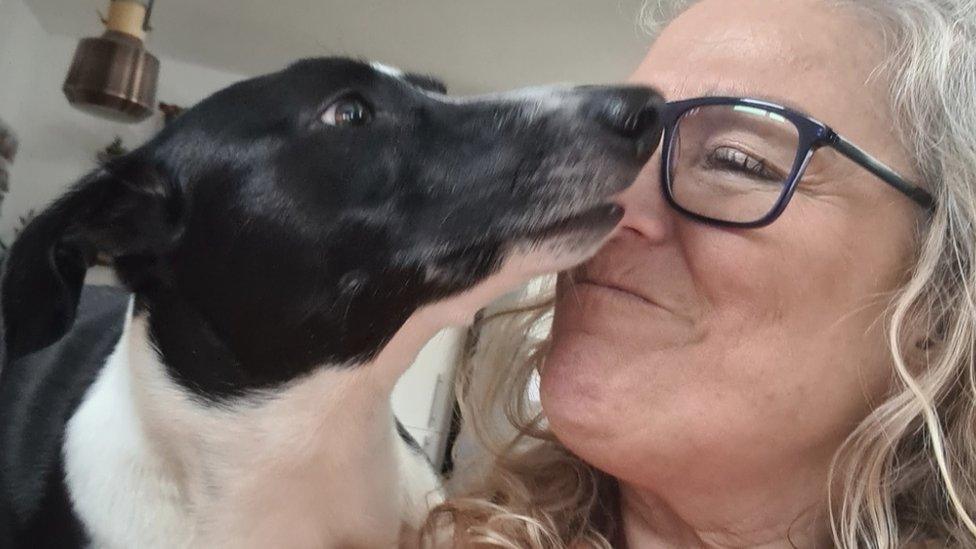Nottinghamshire woman says her dog helped her find breast cancer
- Published

Trisha said Luna would not leave her alone
A woman who says her dog helped her discover she had breast cancer has spoken of the importance of doing regular checks.
Trisha Allison, 50, from Wilford in Nottinghamshire, said her two-year-old collie cross Luna had jumped at her and began pawing and sniffing at her right breast in April.
"I thought 'That hurts a bit' and went and checked myself,'" she said.
A biopsy confirmed the cancer and Mrs Allison is now undergoing treatment.
Mrs Allison, a mum of two who works as a childminder, said: "I was just lying on the sofa, watching TV on a Saturday morning when Luna jumped at me.
"She's a very affectionate dog but she's never behaved like that before - she wouldn't leave me alone.
"When I checked myself, it didn't feel right, so I made a doctor's appointment for the Monday and they sent me for a biopsy.
"It took two weeks to get the result that it was cancer but they have caught it early.
"I think she knew - she's my little lifesaver."

Trisha said she was feeling positive following her treatment
Mrs Allison has had two operations at Nottingham City Hospital to remove the lump and is waiting to find out if she will need to have chemotherapy.
"I'm feeling positive," she said.
"I have always checked myself regularly and the last time I had done so, I hadn't felt anything there.
"I would say it's really important for people to do that, even if they are not prompted by a pet."
Nottingham University Hospitals NHS Trust, which treated Mrs Allison, said "from time to time" it had diagnosed breast cancer in patients who were prompted to seek medical advice after their dog drew their attention to a concern in one of their breasts, "usually by repeatedly sniffing or nudging the area".
However consultant breast surgeon Ellie Gutteridge said that it "was not a very reliable method of cancer detection".
"It's very important to practice regular self-examination, see your GP with any concerns, and to attend for regular screening mammograms when called," Ms Gutteridge added.

Follow BBC East Midlands on Facebook, external, on Twitter, external, or on Instagram, external. Send your story ideas to eastmidsnews@bbc.co.uk, external.